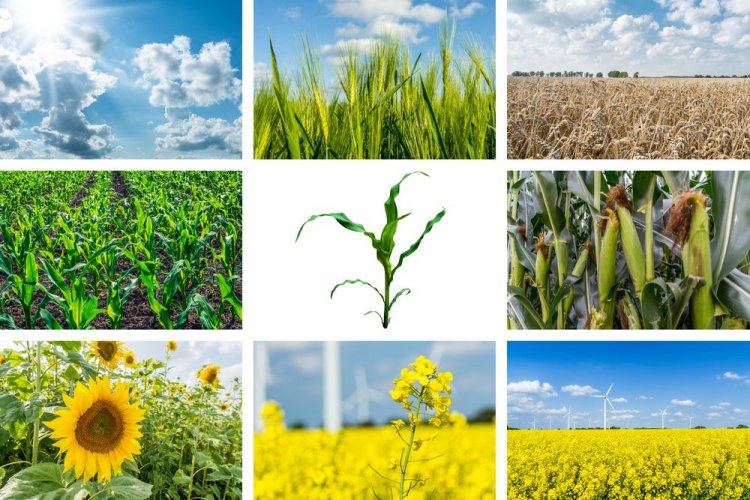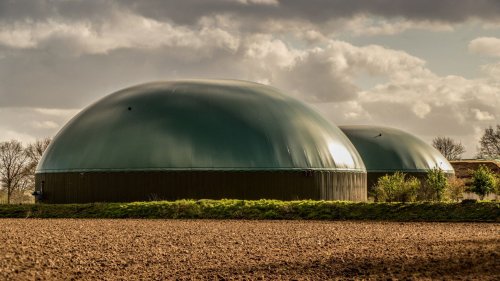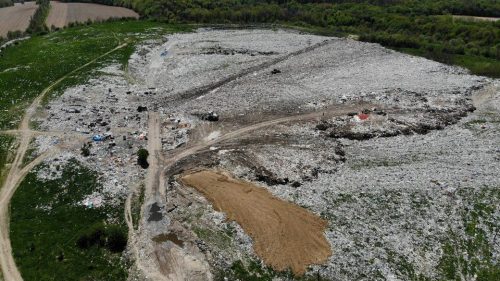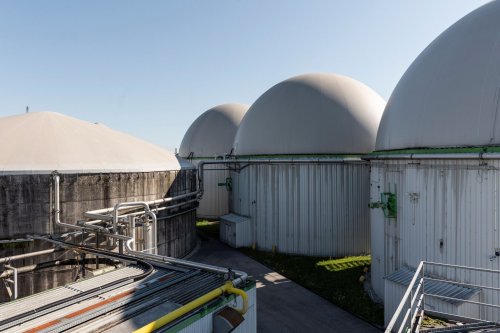Ukraine should exempt from taxation emissions from biomass regardless of its content in fuel to help the domestic industry remain competitive after the full implementation of the Carbon Border Adjustment Mechanism (CBAM).
This was stated by the PAEW Association of Environmental Professionals.
Experts analyzed two European integration bills that have already been adopted as a basis and are being prepared for the second reading:
- No. 9596 “On Amendments to the Tax Code of Ukraine on Establishing a Rate of Zero UAH of Environmental Tax for Carbon Dioxide Emissions for Installations that Produce Such Emissions as a Result of Biofuel Combustion”
- No. 9597 “On Amendments to the Law of Ukraine ‘On Alternative Fuels’ regarding the creation of a register of installations using biofuels as the only type of fuel”.
They provide for the exemption of enterprises from paying the environmental tax for CO2 emissions from the use of biofuels, as is the case in the EU.
What is the problem?
After analysis, PAEW concluded that “these draft laws slightly contradict the current European and Ukrainian regulations, which already take into account that any use of biomass, even in combination with other fuels, has a reduced tax burden.” Experts noted that in the EU, biomass emissions are not taken into account in the calculation of CO2 emissions at all, even if biomass is only partially used as fuel.
“This encourages companies to switch to renewable energy sources more actively,” the EBA said.
Here are the legal acts with which experts found contradictions:
- Directive 2003/87/EC of the European Parliament and of the Council establishing a system for trading in greenhouse gas emission allowances within the Union and amending Council Directive 96/61/EC. They establish the principle that the emission factor for biomass is zero, as biomass combustion does not result in a net increase in carbon in the atmosphere and is therefore not subject to the CO2 tax.
- The Law of Ukraine “On the Principles of Monitoring, Reporting and Verification of Greenhouse Gas Emissions” and Resolution No. 960 “On the Procedure for Monitoring and Reporting of Greenhouse Gas Emissions” stipulate that the operator subtracts the amount of CO2 emissions from the biomass. This rule applies to installations fired by biomass, mixed fuel or mixed material.
- Directive 2018/2001/EC of the European Parliament and of the Council on the promotion of the use of energy from renewable sources. In particular, it establishes sustainability and greenhouse gas emission reduction criteria for biofuels, bioliquids and biomass fuels.
- Council Directive 2003/96/EC on the restructuring of the Community system for the taxation of energy products and electricity. The document establishes the possibility for EU member states to introduce full exemption or reduced taxation rates for energy products made exclusively from biomass or products made from biomass.
PAEW has analyzed these regulations and found that none of them make a distinction between biomass used as the sole fuel and partial use of biomass.
Why it is important
Experts emphasized that in the EU, emissions from biomass (regardless of its content) are not taxed and are not accounted for in the EU Emissions Trading System (EU ETS). They reminded that the current system of taxation of CO2 emissions in Ukraine does not stimulate the introduction of energy efficiency measures and the transition to alternative energy sources.
The EBA reminded that a new challenge for the Ukrainian industry was the introduction of a carbon tax in the EU in October 2023 under the CBAM. It provides for additional payments for those goods imported from countries where CO2 emissions are taxed less than in the EU.
At the same time, the CBAM regulation stipulates that if biomass is used as a fuel for combustion and meets the sustainability and greenhouse gas emission reduction criteria set out in the Renewable Energy Directive (RED II), it can be treated as zero emissions. Therefore, experts warned:
“Without the adoption of financial support systems through tax exemption for biomass emissions (regardless of its content), the situation will lead to a situation where Ukrainian products will become uncompetitive in European and global markets.”
According to the EBA members, draft laws No. 9596 and No. 9597 are aimed at small businesses and will achieve a slight reduction in greenhouse gas emissions. They noted that heavy industry cannot operate exclusively on biofuels, as it will not be able to obtain sufficient heat from such fuels.
Therefore, they proposed to introduce additional provisions to the Tax Code of Ukraine and the Law of Ukraine “On Alternative Fuels” that would define biomass as a non-fossil biologically renewable substance of organic origin capable of biological decomposition in the form of products, waste and residues of forestry and agriculture (crop and livestock production), fisheries and technologically related industries, as well as a component of industrial or municipal waste capable of biological decomposition. It is also envisaged that a part of emissions will be exempt from taxation if mixed fuel or mixed material containing biomass was used.
Experts also propose that the Law of Ukraine “On Alternative Fuels” should provide for the creation by the Cabinet of Ministers of Ukraine of a register of installations using biomass fuel, mixed fuel or mixed material containing biomass, where biomass meets the sustainability criteria under the REDII Directive.
As a reminder, on June 18, the Verkhovna Rada of Ukraine adopted as a basis the government's draft law No. 9597 “On Amendments to the Law of Ukraine ‘On Alternative Fuels’ on the Creation of a Register of Installations Using Biofuels as the Only Type of Fuel.”
A month later, on July 16, MPs adopted as a basis the draft Law No. 9596 “On Amendments to the Tax Code of Ukraine on the Establishment of a Zero Hryvnia Rate of Environmental Tax for Carbon Dioxide Emissions for Installations that Produce Such Emissions as a Result of Biofuel Combustion.”





